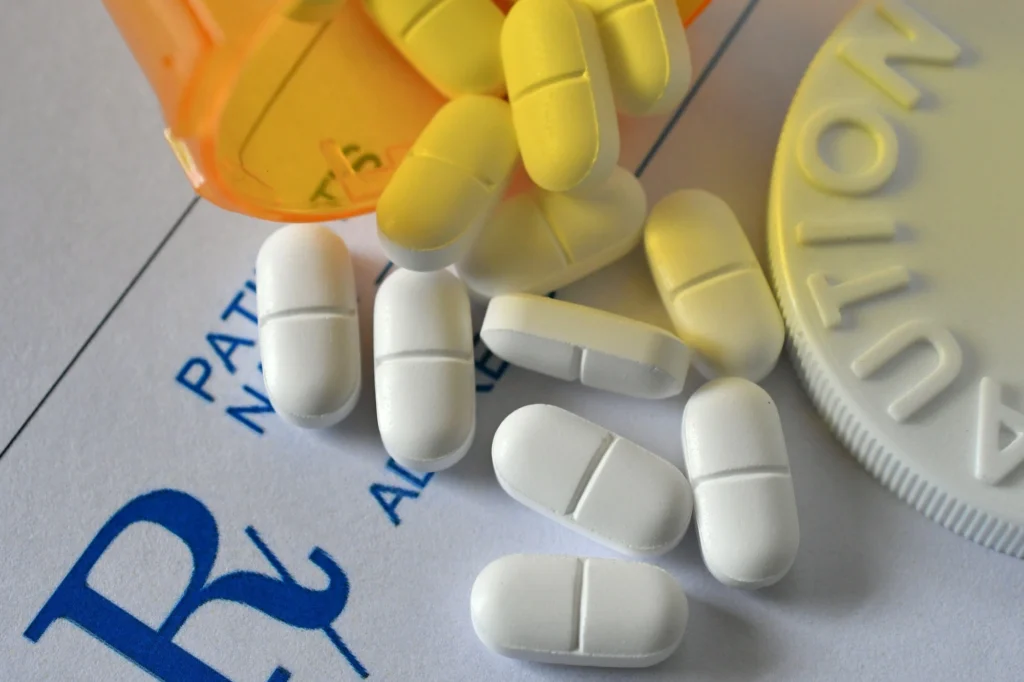The early stages of opioid addiction is the most crucial. If you are taking prescription opioids or you’ve been using them recreationally, you may be concerned about the possibility of becoming fully addicted or dependent. It is well-known that these drugs present a high risk of addiction, so much so that an opioid crisis has developed in the United States. Statistics from the National Institute on Drug Abuse in 2017 showed that in excess of 2 million Americans misuse opioids. On average, more than 90 die as a result of an opioid overdose every day.

Sometimes, opioids are the only thing that bring relief from pain. However, in early stages of opioid addiction individuals can quickly develop tolerance to these drugs, meaning they need higher doses to get the effects they desire. This can go on to become dependency and addiction. Fortunately, opioid addiction can be effectively treated. However, you need to be able to identify the signs of addiction, and the earlier you can do so, the better the chance of recovery. You should also contact our Asheville rehabilitation experts as they are trained to notice these signs as well.
Risk Factors for Opioid Addiction
Some individuals have a higher risk of becoming addicted to opioids. Some of the risk factors include:
- Personal or family history of substance use
- Financial problems
- Depression, anxiety and other mental health issues
- History of crime or legal problems
The presence of one or more of these traits doesn’t automatically mean that a person will develop an addiction. It simply means the individual is at greater than someone who doesn’t share these characteristics.
The Early Stages of Opioid Addiction
Recognizing the signs of early opioid addiction is crucial for timely intervention and effective treatment. The subtle initial indicators can often be overlooked or mistaken for other issues, but understanding these signs can help identify the problem before it escalates. Here are ten key signs that may suggest someone is developing an addiction to opioids:
- Increasing dosage without medical guidance
- Frequent requests for prescription refills
- “Doctor shopping” to obtain multiple prescriptions
- Unexplained mood swings or irritability
- Withdrawal from social activities or hobbies
- Neglecting personal hygiene and appearance
- Sudden financial problems or unexplained spending
- Secretive or deceitful behavior
- Physical symptoms such as drowsiness, confusion, or slurred speech
- Noticeable changes in sleep patterns, either insomnia or excessive sleeping
Experimenting
People who use opioids recreationally may try heroin or fentanyl for the first time while relaxing with friends. They may just want to see what all the fuss is about. Meanwhile, people who have been prescribed opioids by their doctor may use them in a way that was not recommended. For example, they may start taking larger doses or taking the prescribed dose more frequently than they should.
Using Regularly
Sometimes, people begin misusing opioids in specific circumstances such as when they feel anxious or stressed. Some addicts may develop a pattern that’s based on time so they may only use opioids during the weekend. In any case, one of the early signs of addiction is the regular use of opioids in a way that’s not prescribed.
Experiencing Problems Because of Opioid Use
When addiction begins to take root, it starts to have a negative impact on the addict’s life. They may develop legal, professional, personal, and medical issues as a result of opioid misuse. Other people may notice changes in their personality and behavior.
Becoming Dependent on Opioids
When an individual is dependent on opioids, they will continue to use them despite the negative consequences. To get the same effects as before, they will need to take higher and higher doses. They may also experience withdrawal symptoms when they stop using it.
Becoming Addicted
A person who is addicted to opioids can’t stop using them even if they want to. Drugs and drug use become central to their lives and they may begin to neglect their responsibilities. Their health is likely to deteriorate, and they may find it increasingly difficult to function in everyday life.
Avoiding Opioid Addiction
The best way to avoid opioid addiction is to not use opioids. If you’re dealing with chronic pain, ask your healthcare provider if there are any alternatives you can explore. If not, work closely with them to ensure you’re taking your medication safely and contact them if you become concerned. Opioid withdrawal symptoms include:
- Drug cravings
- Anxiety
- Abdominal pain
- Insomnia
- Diarrhea
- Vomiting
- Shaking
- Feeling cold
These symptoms usually last for three to five days but some people experience them for up to ten days. Opioid withdrawal isn’t just uncomfortable. It can be painful and dangerous. That’s why it’s not recommended that addicts quit cold turkey. This can actually lead to stronger cravings. It’s much safer to go through a medically supervised detox that includes medication, counseling, and ongoing support.
Get Help If You Believe You Have an Opioid Addiction
If you think your opioid use has become problematic, you can get professional help at Asheville Recovery Center. We offer a wide range of treatment options that can be customized to your needs. We’re here to give you the tools to live a healthier life and there’s no need to fear judgment. Call us today to schedule a consultation or ask questions about the services we offer.






